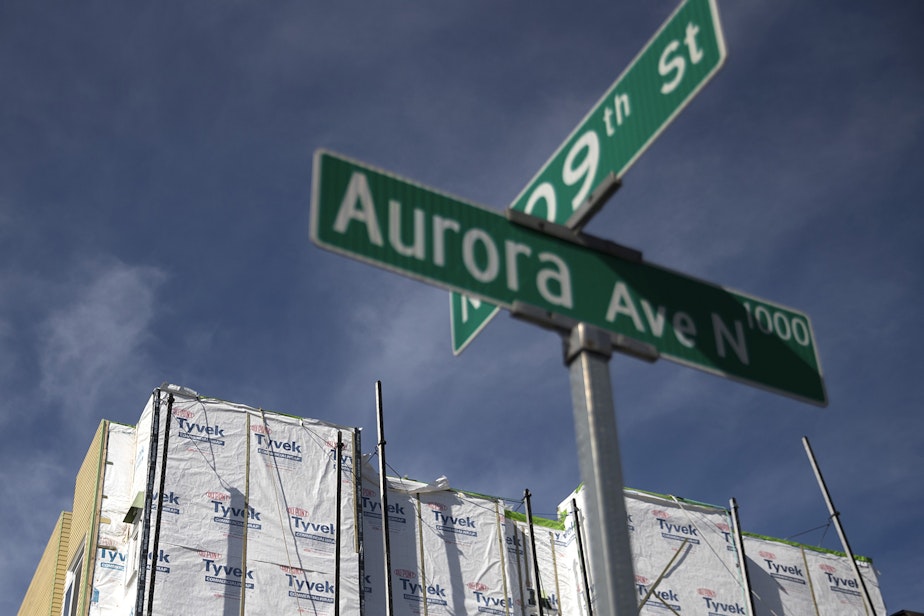Seattle's last frontier: KUOW begins its reporting along Aurora Avenue

Commuters — in 43,000 cars every weekday — see Aurora Avenue as a river. Pedestrians trying to cross from one side to the other see it as a wall.
In coming weeks, KUOW's Region of Boom team will explore how growth is changing State Route 99 from Shoreline to Tukwila.
Explore the series: Along the Mother Road
“A lot of people think of Aurora as a place that you sort of drive through,” McNichols said.
But there’s a movement to turn this road into a place where people want to live and walk. That’s what’s growing in Tukwila, where a walkable urban village has sprouted up around the light rail station.
Sponsored
McNichols said the highway tells the story of where we came from and where we’re going as the once car-oriented road is transformed by construction and public transportation.
On Aurora North, two urban villages are currently being built. It’s estimated that 3,000 new residents could move in over the next 20 years or so.
But Aurora has an image problem: Many still associate it with cheap motels, prostitution and car lots.
Listen: Aurora Avenue: 'The beast in the night, the beauty in street lights'
“Nobody's talking about putting cafe tables out on Aurora Avenue,” McNichols said. “But development does bring change and neighbors are trying to guide that change."
Sponsored
McNichols said that the way zoning is going, Aurora will be seeing more townhomes and apartments with ground-floor retail.
There’s a trade-off, though. For example, McNichols said those motels are sometimes used by homeless people who have scraped up enough money to share a room – a warm place instead of camping outside.
“One by one, those motels are being redeveloped, and a lot of people who are sort of surviving on Aurora are wondering how they're going to fit into the new Aurora,” he said.
Produced for the Web by Kara McDermott.


